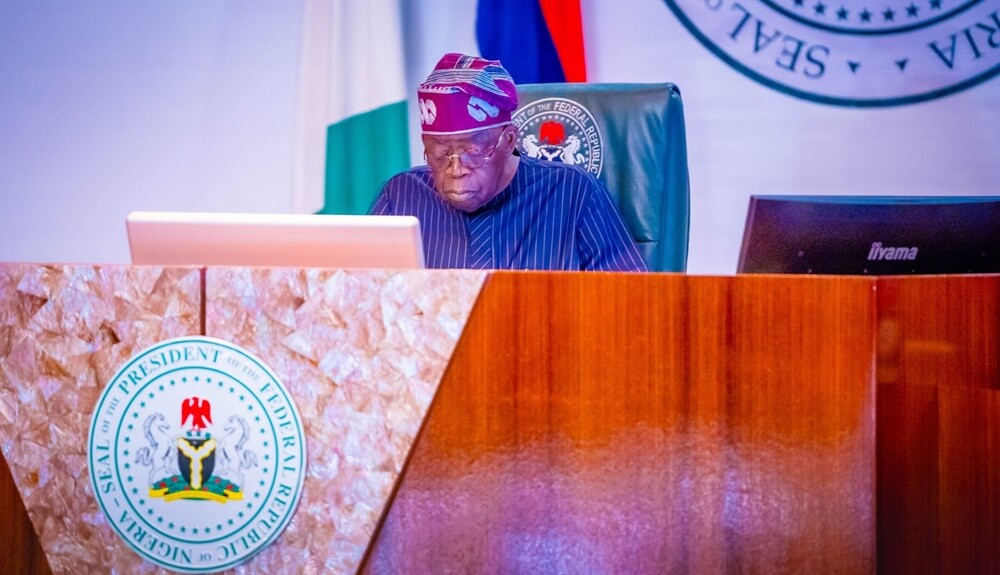As Nigeria edges closer to the 2027 presidential election, one dominant question echoes across political circles: can the opposition unseat President Bola Ahmed Tinubu?
For many analysts, the answer lies in whether disparate opposition parties can forge a strong, united front capable of matching the ruling All Progressives Congress (APC)’s formidable electoral machinery.
Tinubu, a political tactician often described as Nigeria’s most seasoned power broker, rode into office in 2023 after overcoming fierce internal and external opposition.
His victory was underpinned by decades of grassroots political networking, regional alliances, and a reputation for assembling winning coalitions.
For the opposition, challenging such a figure requires not just rhetoric but organization, unity, and strategy.
The 2015 election remains a reference point. Then, opposition forces led by the APC coalesced around a common agenda to oust the People’s Democratic Party (PDP), which had ruled Nigeria for 16 years.
The merger of the Action Congress of Nigeria (ACN), Congress for Progressive Change (CPC), and a faction of the All Nigeria Peoples Party (ANPP), among others, produced a broad alliance that delivered victory to Muhammadu Buhari.
A similar coalition, political observers argue, could be the opposition’s best chance in 2027. Fragmentation will be the opposition’s biggest weakness.
Analysts have noted that no single party has the numbers to confront Tinubu’s APC and that only a united opposition, with a credible candidate and a clear agenda, could shift the balance.
This is especially true as the 2023 elections exposed the vulnerability of a divided opposition.
While the Labour Party, under Peter Obi, galvanized youthful and urban voters, and the New Nigeria People’s Party (NNPP) swooped Kano’s vote, the PDP maintained its traditional strongholds.
The lack of collaboration in the opposition camps diluted their strength, allowing the APC to claim victory with just over eight (8) million votes.
Analysts believe that if opposition votes had been consolidated, Tinubu’s path to Aso Rock might have been far narrower or perhaps even blocked.
For an opposition coalition to succeed in 2027, it must transcend Nigeria’s deep regional and ethnic divides. Tinubu’s 2023 win was built on a southwest base, significant inroads into the northwest, and tactical gains in the north-central.
To counter this, opposition parties would need to appeal broadly across regions while addressing issues that cut across ethnic lines, including insecurity, unemployment, inflation, and governance.
This is even as observers say the 2027 race will not just be about personalities, but about who best convince Nigerians that they have solutions to hunger, insecurity, and the declining economy.
If the opposition makes the mistake of relying solely on anti-Tinubu sentiment without offering real policy alternatives, they will lose again.
Another potential game-changer is Nigeria’s youth demographic. More than 70 percent of the population is under 35, and the “Obidient movement” of 2023 demonstrated the political potential of this restless bloc.
However, without institutional backing, fragmented leadership, and a lack of coordination with older political structures, the youth vote may once again splinter.
Meanwhile, forging a coalition is easier said than done. Opposition parties often wrestle with ego, personal ambition, and ideological differences. Negotiating who gets the presidential ticket, vice-presidential slot, and key campaign positions has historically led to bitter infighting.
Moreover, the APC’s incumbency advantage, control of state structures, access to federal resources, and entrenched networks, presents formidable obstacles.
Still, many believe 2027 represents a real opportunity if the opposition can avoid past mistakes. As an analyst noted, Tinubu’s presidency has created discontent in certain quarters, particularly over economic reforms like fuel subsidy removal and the floating of the Naira.
The opposition’s job, then, is to channel that discontent into a constructive political alternative.
Over the next two years, Nigeria will see intense political realignment. Mergers, defections, and cross-party negotiations are already simmering beneath the surface. Whether these talks translate into a credible coalition may well decide the 2027 election.
For now, the opposition’s challenge is clear: rise above division, rally around a unifying candidate, present a compelling policy agenda, and energize the electorate. Anything less may hand Tinubu, the master of political survival, a second term on a platter.


